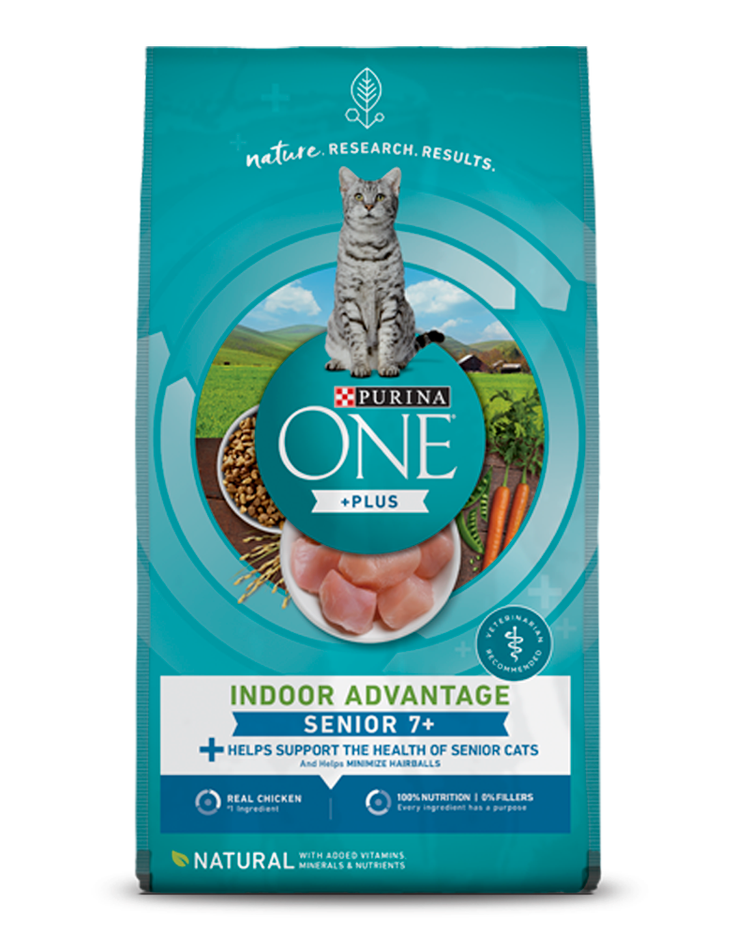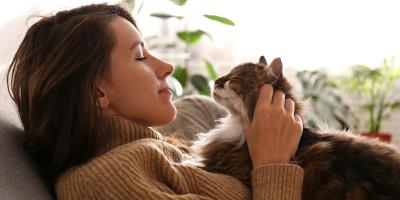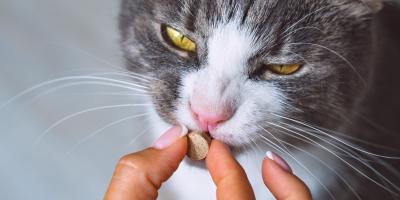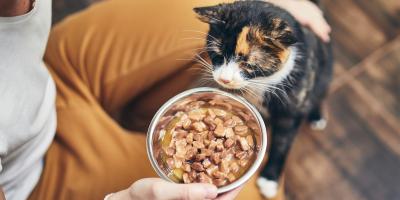What is the Best Senior Cat Food for Your Cat?

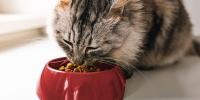
When we look at our aging cat, we might think of all the different ways we can keep them healthy and happy for longer. We want our loved ones to have the best life even in their old age. One of the things that helps is when we feed our cat the best senior cat foods that we can provide them. You might be wondering, How do we determine which is the best healthy cat food for older cats? The good news is there are plenty of great options that will keep your aging feline feeling young and healthy.
Senior Cat Nutrition
The first step in figuring out the best food for your senior cat is understanding their nutritional requirements. Different life stages are going to have different dietary needs. The combination of proteins, fats, carbohydrates, vitamins, and minerals make up a nutrition profile that can be modified based on the cat’s life stage and their individual needs. Kittens (i.e., cats younger than 1 year old) usually need more protein, fat, and calories to help them grow and develop. However, when cats reach adulthood, the focus typically shifts to ensuring that they are maintaining a healthy weight.
As cats age, their metabolism and energy levels change. Usually during middle age (ages 4-9 years old), energy levels can decrease, and keeping an eye on your cat’s daily calorie intake to maintain an ideal body weight can reduce the risk of obesity and other diseases like diabetes mellitus and osteoarthritis. However, when a cat gets closer to the ages of 10 years on up, their energy requirements can change, and they might need higher calories to increase their muscle mass and weight so that they don’t get too skinny. You may be wondering what you should feed to an older cat that is losing weight. Purina experts believe that the key to feeding a senior cat and maintaining their health includes the following:
- Portion an appropriate daily calorie intake to help them maintain an ideal body weight.
- Ensure they are properly hydrated throughout the day.
- Provide a complete and balanced diet that has appropriate levels of fat, protein, vitamins, minerals, and other nutrients for older cats.
- Ensure that your cat has a stimulating environment where they can be active and get some exercise if they are able to.
- You can also introduce foraging devices, such as meal-dispensing feeders, food-filled toys, etc.
- If necessary, you might need to create barriers to food access (baby gates, elevated feeding stations, etc.).
- Talk to your vet about which foods and portion sizes will be the most appropriate for your aging cat.
- Also, talk to your vet if you notice any weight loss or weight gain.
We love our adorable kitties, so the better we take care of them the happier they will be.
How to Choose a Senior Cat Food
There are some things that are good to look out for when it comes to choosing a senior cat food that is right for your kitty:
- Highly digestible food. It’s important to ensure that the food is easy to digest, so they can get the proper nutrient absorption.
- Proper protein amount. Elderly cats usually need more protein than their younger counterparts. Thankfully, there are many high-protein options on the market these days.
- Taurine. Taurine is an essential amino acid necessary for good heart health and senior kitties. It’s usually found in many animal-based proteins, such as chicken, lamb, and fish. Most nutritious cat foods have taurine added.
- Enhanced antioxidant levels. Antioxidants can benefit senior cats and provide extra support to their immune systems giving them an additional boost of health.
- Good moisture content. Many older cats need a good moisture content for increased hydration. They also start to get more dental problems as they age, so feeding soft cat foods makes it easier for them to eat. Senior wet cat foods are a great option as they are usually easier for senior cats to manage and will have the necessary nutrients for an elderly cat.
- Sufficient calories. Many senior kitties struggle to keep weight on. It’s important to ensure that they are getting the right number of calories. Your vet will be able to tell you the ideal weight for your older cat. They can also help you find the best food and feeding schedule for them.
The nutritional needs of senior cats can change rapidly, so pet owners should seek veterinary care if they notice an issue and should be taking their cat for regular wellness checkups. If older cats have any underlying medical conditions, they may require a specially formulated cat food prescribed by their veterinarian. Work with your vet to see which senior cat food option would be best for your kitty.
How to Feed Senior Cats
It’s important to be mindful when you choose to transition your cat to senior cat food. If you change their food too quickly, this can cause GI upset. Instead, a slow and gradual transition over the course of 8-10 days will be better for your elderly kitty and their tummy. Start by mixing 1/4 of the new food with 3/4 of your cat’s current diet and then gradually increase the ratios as your kitty adjusts. Some cats might need a few extra days to adjust as they are getting used to their new food. Talk to your vet about any concerns you might have and ask them for advice on the best way to switch your kitty to new senior cat food.
Senior Cat Hydration
As cats get older, their sensitivity to thirst might decline and could lead to dehydration. Chronic dehydration can interfere with organ function and other essential physiological needs that help to keep the body running smoothly and in top health. It’s important to ensure that your senior cat is staying properly hydrated.
Make sure your kitty has access to fresh, clean water and that you are monitoring the water levels in case there is a large reduction in water intake. Also, check to see if you are using a clean water bowl that is appealing to your cat. For example, some cats like running water and prefer a water fountain bowl, while other cats might prefer a normal water dish that they can drink from. It’s also good to set up multiple water bowls throughout the home where your cat visits frequently.
Wet and canned foods have a high moisture content and can help get extra water into your senior cat. You can also mix a little water in their food if they are not getting enough hydration.
For more expert tips on caring for your senior cat, explore our other feeding senior cat articles.

Find Your Pet’s Perfect Food
Get your personalized recommendation with our Pet Food Finder tool.

